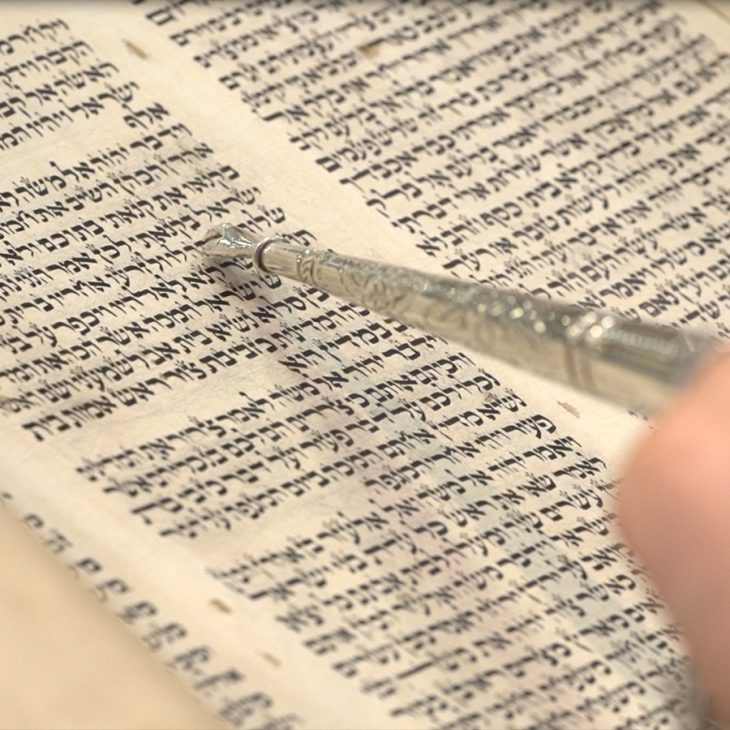Guided by the Torah to Vote
October 22, 2020

Working at the intersection of technology and social change, Lulu Abdun is a Reform Jew from Memphis. She is a founding member of Bend the Arc: Jewish Action Memphis, a chapter of a national progressive Jewish organization working towards a multiracial democracy where we can all live, love, and thrive.
When I was twelve years old, my twin sister and I had a b’not mitzvah where we read from the Torah and “became women.” My Torah portion was about a man named Bezalel who was building a tabernacle. But before he was able to build the tabernacle, he had to be approved by the community. This tells us that Jews have been participating in a democratic process for centuries. Democracy as we know it has a long legacy, and it is our duty to participate in it.
Now as a 23-year old, I am involved in a national progressive Jewish organization called Bend the Arc. I started as a fellow through the Jeremiah Fellowship geared toward Jews age 22 to 32 who wanted to learn how to community organize and fight for progressive change. Participating in this five-month fellowship during COVID-19 and the uprisings in support of Black life was very intense and brought even more disparities to light, such as domestic violence, housing crises, and racism. As a cohort of four fellows in Memphis, TN, we planned events around extending the eviction moratorium by contacting state elected officials, banning Operation LeGend and Operation Relentless Pursuit in our city and other cities around the nation, and GOTV text banking to folks in our network using the Reach app.
To that end, the power of technology in this day and age and during election season can enhance GOTV efforts tenfold. Technology and social change—and their Nexxus—are near and dear to me. When they are used in tandem, great change can come about. For example, being able to contact people you know by using the relational organizing Reach app allows you to cross-reference contacts already in your phone with voter data – facilitating easier conversations with people in your network about voting plans. Using tools like this can garner the power of technology to build the society you want to see. Furthermore, we have seen how technology can connect us during the age of social media and the time of COVID-19.
Even though my fellowship has ended, I continue to work on GOTV efforts. I have gone from someone being asked to vote to someone inviting others to vote. I think back to hearing things like: “Vote like your life depends on it…because it does.” Or “This is the most important election of our lives.” And I felt deterred. I heard these things time and time again when the election season rolled around. I thought—Why do you want me to vote? What is the political motive behind the statement? Where do you stand on politics? Why do you vote?
As a Jew, I am called to pursue justice. The Torah says, “Justice, justice you shall pursue.” The word “justice” is stated not once, but twice because of how critical and central, it is to Judaism. I do that by casting my vote for issues rather than politicians. Does a candidate care about criminal justice reform and fighting systemic racism? I do. Does a candidate value science and research? I do. Does a candidate care about protecting our planet? I do.
I have come to understand that once I cast my vote, my civic duty does not stop there. And I hope you feel the same. Once our elected officials get sworn into office, it is our duty to hold them accountable. This can be by calling them about issues we care about (or shooting a quick text to Resistbot to send them an email), lobbying at their office, or tuning into public meetings. We have to stay engaged—no matter the outcome of the election.
As a Jew,I know how important it is to have allies and people on your side. Genocide. Discrimination. Oppression. Microaggressions. Being persecuted for centuries and being assaulted by antisemitism daily, Jewish struggles are intrinsically linked with a national and global struggle for a right to live in a free and just society. We need the collective power of everybody to build a world where we can all live, love and thrive. Building a multiracial democracy is hard but we have the power to create the world that we want to see. Voting is a way to get there.
Share
Related Articles
American Civic Life
American Civic Life



